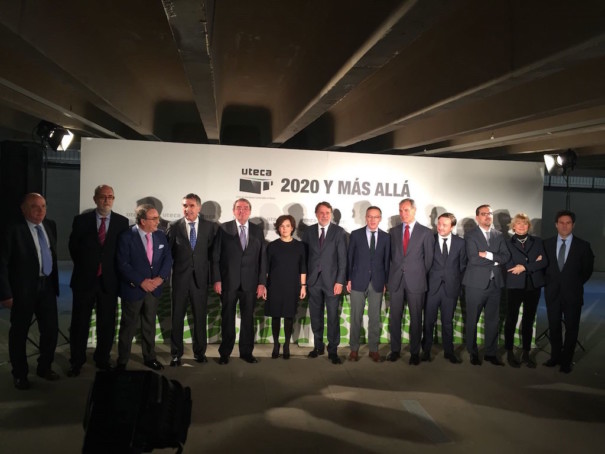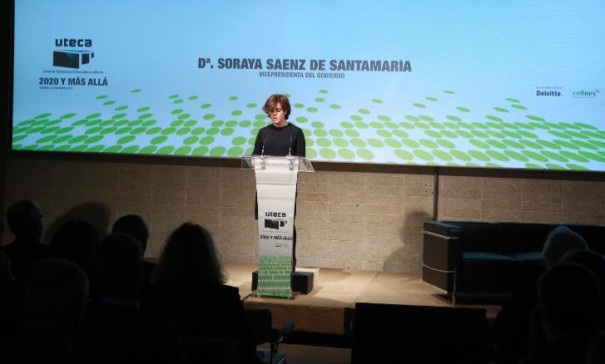The Government will open a public consultation on the second digital dividend
La vicepresidenta del Gobierno, Soraya Sáenz de Santamaría en la apertura de la Jornada Anual de la Unión de Televisiones Comerciales en Abierto (UTECA) anuncia que en unos días se abrirá una consulta pública entre agentes del sector sobre este nueva migración digital.
La Unión de Televisiones Comerciales en Abierto (UTECA) celebró este martes su jornada anual bajo el lema 2020 y más allá. Como ya viene siendo tradición fue la vicepresidenta del Gobierno, Soraya Sáenz de Santamaría la encargada de abrir esta jornada celebrada en el Colegio Oficial de Arquitectos de Madrid coincidiendo con el Día Mundial de la Televisión.
Sáenz de Santamaría anunció que antes de que acabe este mismo mes de noviembre el Gobierno abrirá una ronda de consultas con los agentes del sector para la implementación del segundo dividendo digital. Esta consulta servirá para elaborar el plan de acción que deberá está listo en junio de 2018 de cara a aseguran el apagón previsto inicialmente para 2020. Este segundo dividendo digital supondrá una nueva reorganización de canales que pasa por la liberación de la banda de 700MHz del espectro radioeléctrico en favor de los servicios móviles 5G. Un proceso similar al que se vivió cuando se liberó la banda de 800 MHz para dar paso a las redes 4G.
A su juicio esta nueva transición digital deberá “garantizar la oferta televisiva con el mínimo impacto en los ciudadanos y en el sector”. Precisamente el coste de esta transición es una de las cuestiones clave ya que la La Comisión Europea cifra en 890 millones el coste de la adaptación de las redes TDT aunque podrían recaudarse 11.000 millones procedentes de las subastas de frecuencias que se adjudiquen a los operadores de telecomunicaciones.
Nuevas plataformas
Además del segundo dividendo, otra de las cuestiones que salieron a colación a lo largo de la jornada es el impacto que sobre los broadcasters tradicionales están teniendo las nuevas plataformas digitales de distribución de contenidos como Netflix, HBO o Sky.
El presidente de UTECA, Alejandro Echevarría, exigió modificaciones legislativas que se ajusten a la nueva realidad audiovisual, ya que a su juicio los broadcasters tradicionales lineal “cuentan con una regulación, con un marco regulatorio exhaustivo y puntilloso, con fuertes obligaciones frente a las plataformas online que viven en una jungla legal con limitados o nulos controles y obligaciones y con escasa contribución a la economía nacional”.
“Es esencial que se dispense un tratamiento en pie de igualdad a los distintos distribuidores de contenidos”, añadió. Desde la patronal de las televisiones comerciales consideran que regular y supervisar a todos nos equiparará en derechos y obligaciones, pero, ante todo, “supone una mejor protección del espectador y el reconocimiento de la industria audiovisual europea como motor de cultura y empleo”, argumentó Echevarría.
Por último, recordó que la legislación actual en material audiovisual se remota a hace casi una década siendo necesario ahora “ajustarlo a la nueva realidad digital”.
Did you like this article?
Subscribe to our NEWSLETTER and you won't miss anything.
















